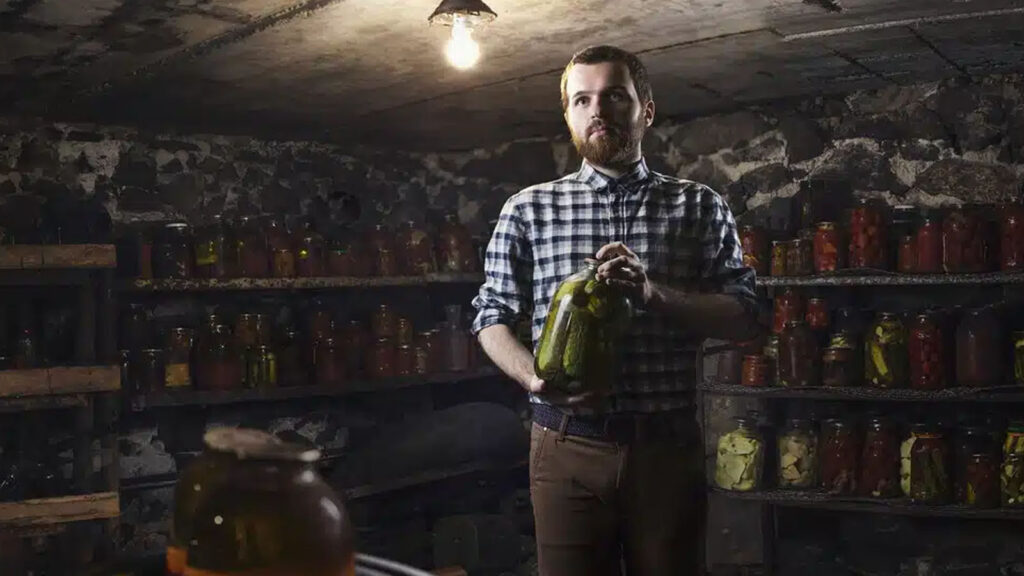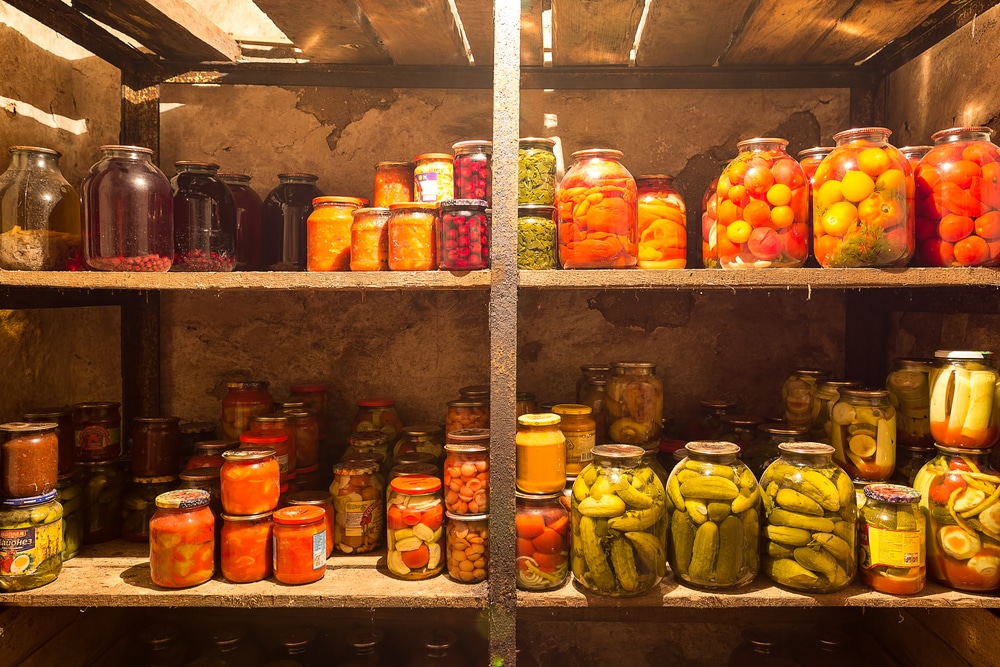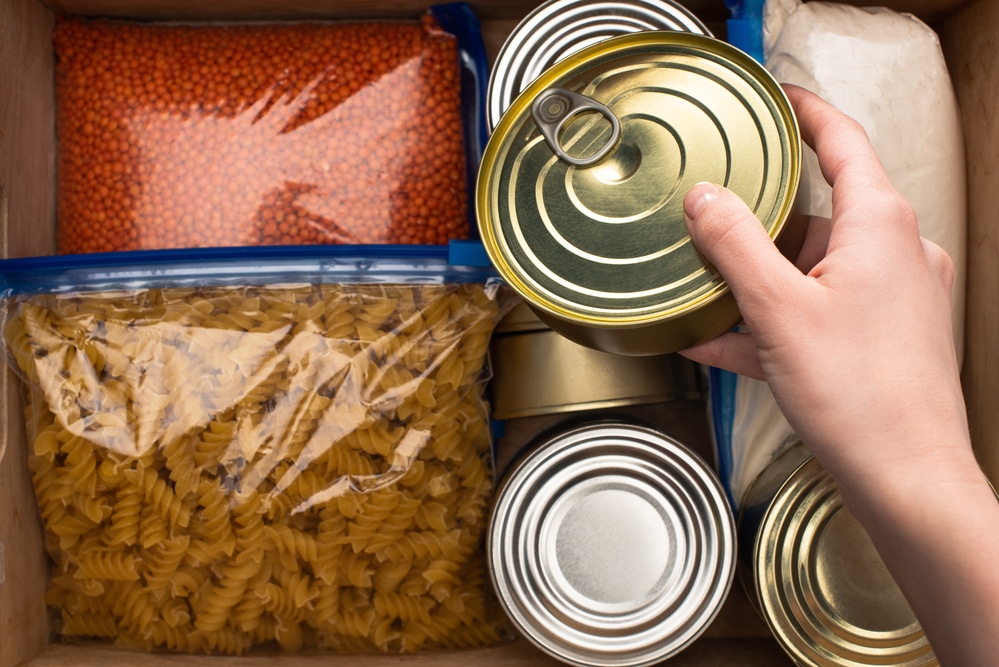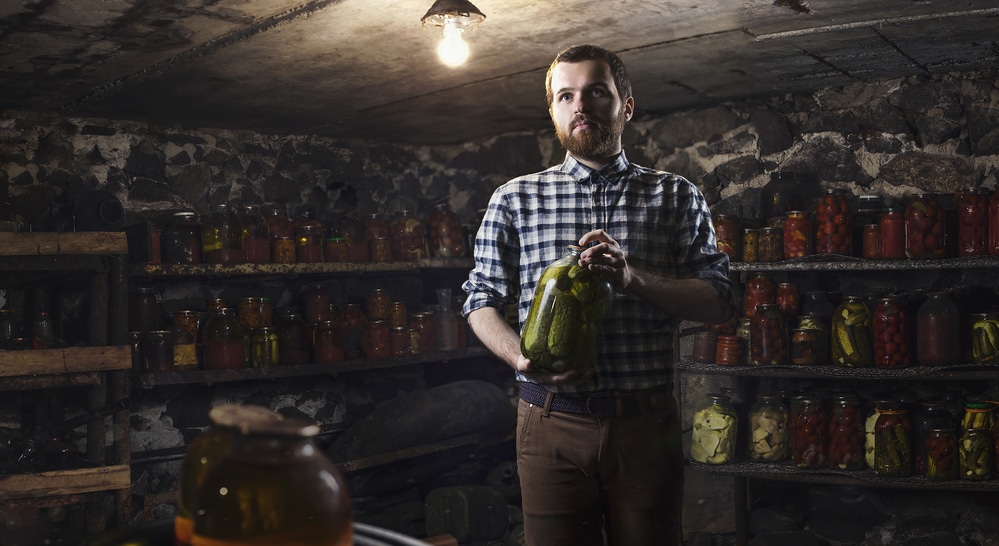

You never know what can happen, so building a food storage allows you to be prepared for any crisis that may come your way. In the event of an emergency, you don’t want to be stuck, snowed into your home, with nothing to eat and no way to get more food. Stocking up for your winter food storage gives you the assurance that come what may, you have supplies to get you through it.
During the frigid winter months, it’s especially important to be prepared. You want to have a plan for what to do and key essentials in your storage. The last thing that you want is to be forced to delve into your food storage… Only to find that the food has spoiled.
#1. Know Where Your Supply Is The Most Vulnerable
One of the nice things about winter food storage is that cold is usually good for preserving food. Putting dry goods like flour in a refrigerator can help them to last longer than keeping them in the pantry.
However, there are still challenges you can face. As the temperature fluctuates, your containers can expand and contract. Seams can open due to this contraction, which lets oxygen in. This can lead to spoiled goods. Rodents can seek shelter from the cold in the cozy warmth of your rice bags and ransack your supply. Moisture can spoil your food by allowing for mold growth and bacteria.
You can prevent these issues with your winter food storage when you:

When crisis strikes, you could find yourself without power. You want to ensure that your winter food storage has dried good and shelf-stable food that you can fall back on if your refrigerator and freezer stop working.
Canned foods and dry goods are great options for this. You can purchase canned goods at the store, as well as make your own. It’s usually cheaper to buy these in bulk. However, when buying canned goods, be mindful of the water content, as cans with high water content can swell or burst if it gets too cold.
Sort your shelf-stable foods with the most recent purchases in the back and the ones with a sooner expiration date in the front. If the foods you stock need some sort of preparation, such as being heated up, ensure that you account for this.
We touched on this tip in the first section, but it’s so important that it merits a section all to itself. If your winter food storage isn’t properly insulated, you may struggle with preserving your food properly and end up with spoiled goods.
Remember that heat rises. If you’re limited in what you can do, insulate your ceiling first. From there, you can take on your walls, doors, and then finally, the floor.
You also want to insulate your cabinets and shelves, if possible. If you have an old refrigerator lying around that you no longer use, this can work to store canned and dry goods, as refrigerators are sealed and insulated already.
In our diet-obsessed world, calories are often considered to be this evil thing that you need to limit your consumption of. However, your body burns calories just by existing. You need calories in order to function properly and stay healthy. In the event of an emergency, your body burns more calories than normal, due to high stress levels.
Do the math in order to ensure that your winter food storage has enough food to properly sustain you and your loved ones in the event of an emergency. Focusing on stocking high-calorie foods so that you can rest assured that people’s nutritional needs will be met.
Calculate how many calories are in each item that you store. While today’s culture may have you believe that storing low-calorie, low-fat, zero-sugar type foods is best, you need your strength. Ensure that you have enough stored for about 2000 calories or more per person per day.

Kitchen Kneads provides all sorts of goods and equipment to ensure that your needs are met. Whether you’re looking for containers or to stock up on dried goods, we can help. We have an upcoming class on food storage you may find enlightening.
Contact us today to learn more about what we can do for you!

Kitchen Kneads is your one-stop shop for quality grains, flour, kitchen appliances, and other ingredients.
We are Utah’s premier baking and cooking resource!
Questions?


Kitchen Kneads is your one stop shop for quality grains, flour, kitchen appliances and other ingredients. We are Utah’s premiere baking and cooking resource! Questions?
888-881-9957
info@kitchenkneads.com
2022 | Kitchen Kneads | All Rights Reserved | Privacy Policy | Terms | XML Sitemap | Site by PDM